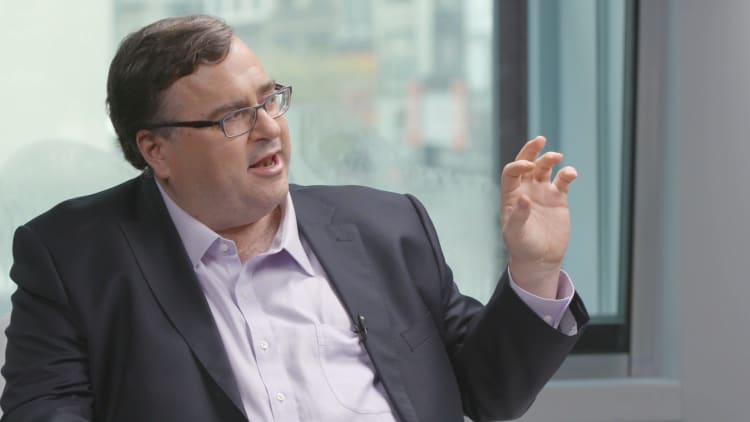LinkedIn co-founder and investor Reid Hoffman, sometimes called the "oracle of Silicon Valley," is a known business strategist. That passion for strategy, says Hoffman, stems from a childhood obsession with board games, one the billionaire says was the "most interesting predictor" of his later success as an investor and businessman.
"I figured out what the patterns of strategy were and I translated that into how I founded companies and operated as an executive and as an investor," he tells CNBC Make It.
Military-themed games helped him combine tactics into a strategic plan, while role playing games like Dungeons and Dragons and Runequest taught him problem solving. Playing against real people and not computers helped him keep his competitors' motives in mind.
"A real strategy is based off of: what are your competitors doing? What is their mindset? What are their assets? What's the way you can make that work?" Said Hoffman on the Tim Ferriss Show podcast.
As an adult, Hoffman was one of the first PayPal employees alongside its founders Elon Musk and Peter Thiel. Hoffman went on to co-found career network LinkedIn and become a partner at Greylock Partners, one of the oldest venture capital firms.
While his gift for strategizing has earned him a net worth of $1.7 billion, Hoffman hasn't stopped playing board games. The venture capitalist still enjoys playing Settlers of Catan, a board game with an economic twist. It requires players to assume the role of settlers who trade resources to grow their colonies.
Hoffman says games like Catan prompt players to ask themselves the same questions a start-up faces: "How much do you build for yourself, how much do you position against other people?
Says Hoffman, "It's the game that is closest of all the board games to entrepreneurship."
Ultimately, the skills board games can teach — thinking several steps ahead, leveraging resources, learning from past successes — can help anyone become a better strategist and cope with the unexpected.
Says Hoffman, "You actually have to have a flexible and adaptive strategy because not everything is controllable."
Like this story? Subscribe to CNBC Make It on YouTube!
Don't miss:



